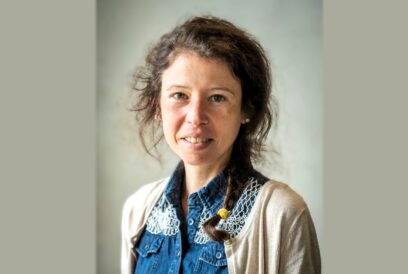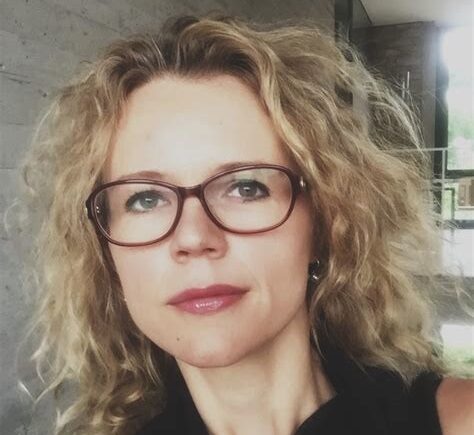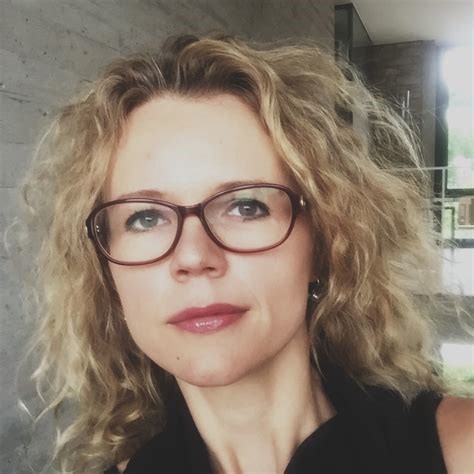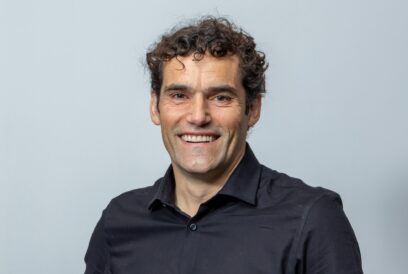

“This horrendous war could, in a twisted way, have a positive impact by prompting Ukrainian society and its adult education to remind European adult education of the essence and purpose of adult education. Namely, empowering individuals to live in a democratic society and actively co-create it with others”, says Tetyana Hoggan-Kloubert. Photo: Tetyana Hoggan-Kloubert.
How can European adult education best support Ukraine? Is reconciliation with Russia even conceivable?
Published:“This horrendous war could, in a twisted way, have a positive impact by prompting Ukrainian society and its adult education to remind European adult education of the essence and purpose of adult education. Namely, empowering individuals to live in a democratic society and actively co-create it with others”, says Tetyana Hoggan-Kloubert. Photo: Tetyana Hoggan-Kloubert.
In her column, Tetyana Hoggan-Kloubert emphasises the importance of collaborating with European adult education institutions as a means of supporting Ukraine. She also delves into the complex question of reconciliation with Russia.
It is imperative and crucial, from my perspective, that European adult education plays a pivotal role in the reconstruction and advancement of the educational landscape in Ukraine. This involves developing further exchange programs between Ukrainian and European adult education institutions to share good practices and mutual learning. We can create dialogue forums and platforms to promote exchange between diverse population groups, strengthen understanding and cohesion and develop psychosocial support programs for adult education to aid trauma processing and build resilient communities.
Additionally, financial resources for rebuilding adult education institutions in Ukraine, including infrastructure and resources improvement, need to be made available, driven by a sense of solidarity. Moreover, European adult education can build upon its successful history of creating and strengthening democratic societies after devastating wars and strategically utilise these experiences for Ukraine, and to some extent, for Russia, perhaps even more so.
European adult education can build upon its successful history of creating and strengthening democratic societies after devastating wars.
However, I will advocate strongly for European adult education to primarily support Ukraine – specifically the adult education institutions in Ukraine that, despite all adversities, currently provide educational offerings in line with adult education principles, namely supporting individuals in coping with their lives and overcoming life’s most difficult challenges.
Concrete examples include establishing new contacts with these institutions, facilitating online exchanges, contributing to the visibility of their work, assisting in the development of new, urgently needed programs, and providing financial support. Moreover, European adult education can create platforms to foster the exchange of experiences among Ukrainian diaspora communities, contributing to the development of post-war concepts.
In conclusion, I want to emphasise that both Ukrainian and European adult education can benefit from a renewed focus on democracy, participation, and fellow citizenship in adult education. This horrendous war could, in a twisted way, have a positive impact by prompting Ukrainian society and its adult education to remind European adult education of the essence and purpose of adult education. Namely, empowering individuals to live in a democratic society and actively and reflectively co-create it in collaboration with others.
Complex question to be solved
The question of reconciliation with Russia is undoubtedly complex and depends on various factors, including the acknowledgment of Russia’s responsibility and Ukraine’s willingness to reconcile. The Ukrainian-Russian relationship will never again be viewed without taking into consideration the many aggressions and atrocities, such as in Bucha, Irpen and Mariupol.
It is important to emphasise that through this war, seemingly secure assumptions about the post-WWII civilized order in Europe were shattered. After the end of this war, Ukraine, together with its European neighbours, will primarily be interested in neutralizing the potential threat of the defeated opponent, Russia.
It is evident that this process will not be easy, and adult education, especially in the realm of political education, will play a crucial role in creating spaces for encounter and dialogue.
Catalyst for deeper dialogue
In the reconciliation process, Russian crimes during the war should and likely will be the initial focus. However, adult education should serve as a catalyst for further and deeper dialogue and be expanded thematically to promote democratic values in the long term and take a stance against oppression.
Adult education should be expanded thematically to promote democratic values and take a stance against oppression.
This expansion should include not only the immediate events of the current war but also address the reckoning with Russia’s colonial past. Colonial influences directly contribute to the current war, but they have also contributed to previous occupations of parts of Moldova (Transnistria), to the wars in Chechnya and Georgia, including the occupation of Georgian Area of South Ossetia.
A comprehensive historical perspective in adult education is crucial to understand the roots of conflicts and foster sustainable dialogue for lasting reconciliation.
Author







